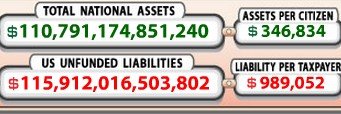Mulligan
Give me a museum and I'll fill it. (Picasso) Give me a forum ...
- Joined
- May 3, 2009
- Messages
- 9,343
Ok, I apologize if this question makes the "dumb question of the day" but it has piqued my interest and I only know the basic mechanics behind it all.... I caught the tail end of Cramer mentioning the Fed should be selling it's bonds that it had bought heavily the past few years now and make a profit on it while taking advantage of the current bond market. 1) Besides maybe causing rates to move up some, what would be the reasons not to? 2) If they did start selling them, and booked "profits" on them, who gets the money? Does the Fed keep it or does it go to general treasury? Would selling them at profit have any positive benefit for our country as opposed to just letting them mature on their own to be bought later?
It just seems odd that you can borrow money to pay for your own spending needs then be able to book a profit from it all.
Sent from my iPad using Tapatalk
It just seems odd that you can borrow money to pay for your own spending needs then be able to book a profit from it all.
Sent from my iPad using Tapatalk


